People really be out here thinking that the cultural, student, academic, intellectual, & int’l non violent boycott, & other campaigns against South Africa are what led to the demise of apartheid. That’s basically a myth.
Academics, but esp. students, pundits, journalists, professionals, NGO types, artists, media, vocal liberals, are self important, myopic, over emphasize their role, focus on what they can control , & reflexively adopt bourgeois liberal idealism even if they don’t want to
They also, importantly, write the history & received narrative—at least in large part, and play a role in how it is taught, disseminated, received & so on—so they get to play up their role, in reality things were quite different.
1. There had been resistance both mass & insurrectionary, direct & indirect, organized & informal, from within South Africa since the beginning of apartheid
2. A minority ran a country in their favor at the expense of an overwhelming majority
2. A minority ran a country in their favor at the expense of an overwhelming majority
3. More or less the entirety of the second world & third world were opposed to Apartheid South Africa & pressured it
4. South African routinely intervened in & destabilized neighboring states, stretching it thin & bringing on mass blowback & conflict
4. South African routinely intervened in & destabilized neighboring states, stretching it thin & bringing on mass blowback & conflict
5. Nearly all organized groups of black South Africans actively & passively resisted apartheid, many militantly & many non violently
6. While a majority (57-60% in most polls) of white South Africans supported apartheid over its run,about 20% opposed it, & the rest in the middle
6. While a majority (57-60% in most polls) of white South Africans supported apartheid over its run,about 20% opposed it, & the rest in the middle
7. Among this 20% were groups like the communist party, which actively resisted apartheid during its duration, as did other left wing groups. Notably although Jews were only 1-2% of white South Africans they comprised up to 16-33% of whites opposed to & resisting apartheid
8. By ‘76 there was a state of mass revolt, & rioting, not to mention continual opposition from labor unions, churches, parties, left wing groups, student groups, people abroad, and any number of other vehicles of resistance.
9. In 1966, a UN General resolution against Apartheid & an embargo were proposed. By ‘73, they were adopted overwhelmingly (91 in favor ~75%, 4 against—~3.3%, , 26 abstained—~20%), & by ‘84 it was adopted by security council
10. While the boycott & divestment campaign has *some* role & led to capital outflows, its main effects were cultural, but the real effects came when the US instituted broad based sanctions & tax rules throughout the 80s, cratering trade, investment & profits in South Africa
11. At the same time, afraid of opposition at home & abroad, pro Apartheid minister Botha was pushed into pushing for broad based reforms, ending bans & restrictions & creating a tricameral parliament, when he had a stroke, Klerk took office & immediately took to dismantling it
—Brief break in thread to discuss the screenshots of relevant info, they’re unfortunately not in any particular order so I apologize for that—
(It’s only Wikipedia, but here’s some helpful stuff relevant to much of the above. Also, note, I collected these after I started writing the above, so the points don’t line up—i.e. claims made above the screenshots are meant to be sourced by them—they’re for the whole thread.)
(It’s haphazard, I know, but I didn’t pre plan this thread well. Anyway, these all contain relevant info to the claims above, and further ones, just not in order)
Anyway, the sum total of the proceeding discussion leads us to several points, about the rise & fall of apartheid.
Apartheid came in to being in the 50s, albeit not all at once, blacks still survived in the parliament, though a skewed electoral system & precursors to apartheid helped it come to power. Resistance began almost immediately.
Thus, the end of apartheid came as a result of:
1. The immediate resistance of the majority population & sunsets of the minority population, that began in the 50s & continued until the 90s. The most effective resistance was militant, riots, attacks, but secondarily nonviolent
1. The immediate resistance of the majority population & sunsets of the minority population, that began in the 50s & continued until the 90s. The most effective resistance was militant, riots, attacks, but secondarily nonviolent
2. Secondarily the main impetus to the end of apartheid was that it was unsustainable given the nature of the country, the resistance & the economy. Even pro apartheid people recognized this & thus instituted reforms meant to save it.
3. The next most important cause to the end of apartheid was the critique & opposition of basically the entirely 2nd/3rd world, and especially the blowback & chaos caused in SA’s immediate neighbors & also importantly the UN’s embargo from the 70s on.
4. The next main cause was Neoliberalism & the economy—it had simply become unsustainable & was leading to South Africa’s economic slowing & collapse, which the outside resistance movement helped but did not cause. Capital couldn’t tolerate the system that it had once loved.
5. The international movement, especially the pressure movement, and the mass boycott & disinvestment campaigns, especially when they gained steam in the US & elsewhere definitely helped speed the end & catalyzed the economic & outside political pressure but didn’t cause it
6. This leads us to the final causes of the end, the first was that all of the above led to internal reforms by Botha meant to save the system, but helped hasten its end
7. Next, all of the above led the US to do comprehensive sanctions putting pressure on & reinforcing the above
7. Next, all of the above led the US to do comprehensive sanctions putting pressure on & reinforcing the above
8. Finally, the existence of a mass based movement that could take advantage of the above, its militancy and gaining steam,combined with a reformist faction opportunistically placed between the radicals & the supporters,who was strategically able to use all of the above to end it
http://www.econ.yale.edu/growth_pdf/cdp796.pdf
https://moscow.sci-hub.tw/2953/d3852a7663d8e3be3ebe7356f921bc1d/hyslop2006.pdf">https://moscow.sci-hub.tw/2953/d385...

 Read on Twitter
Read on Twitter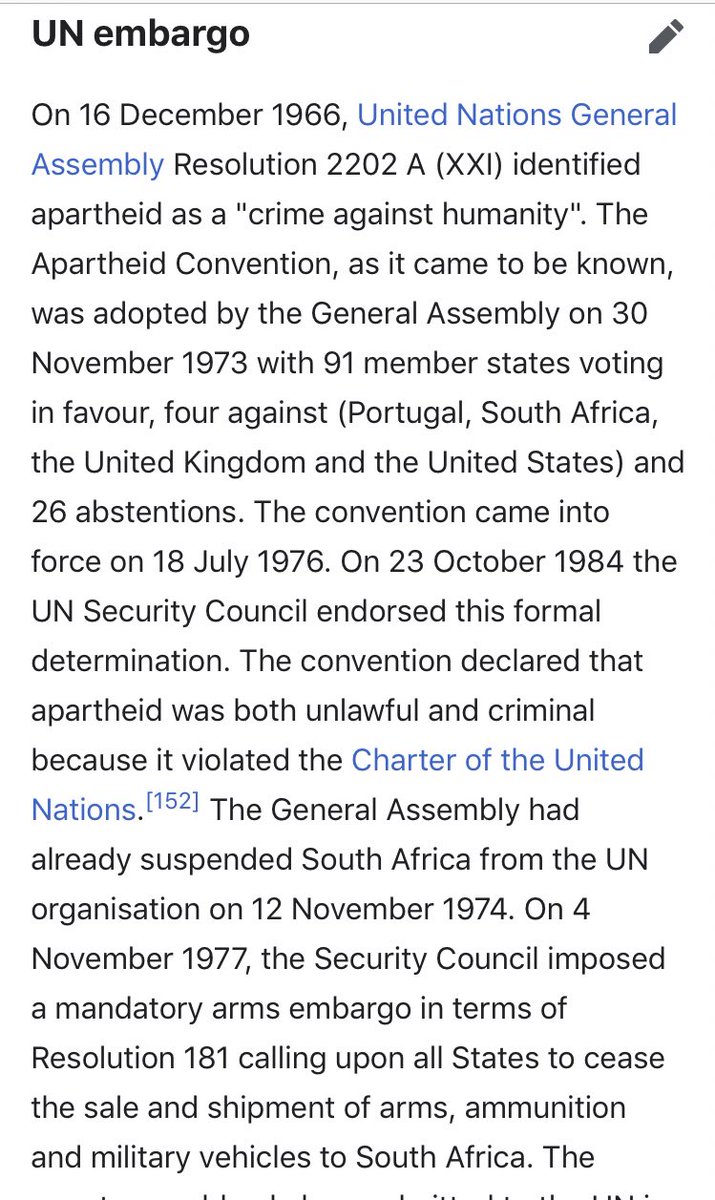
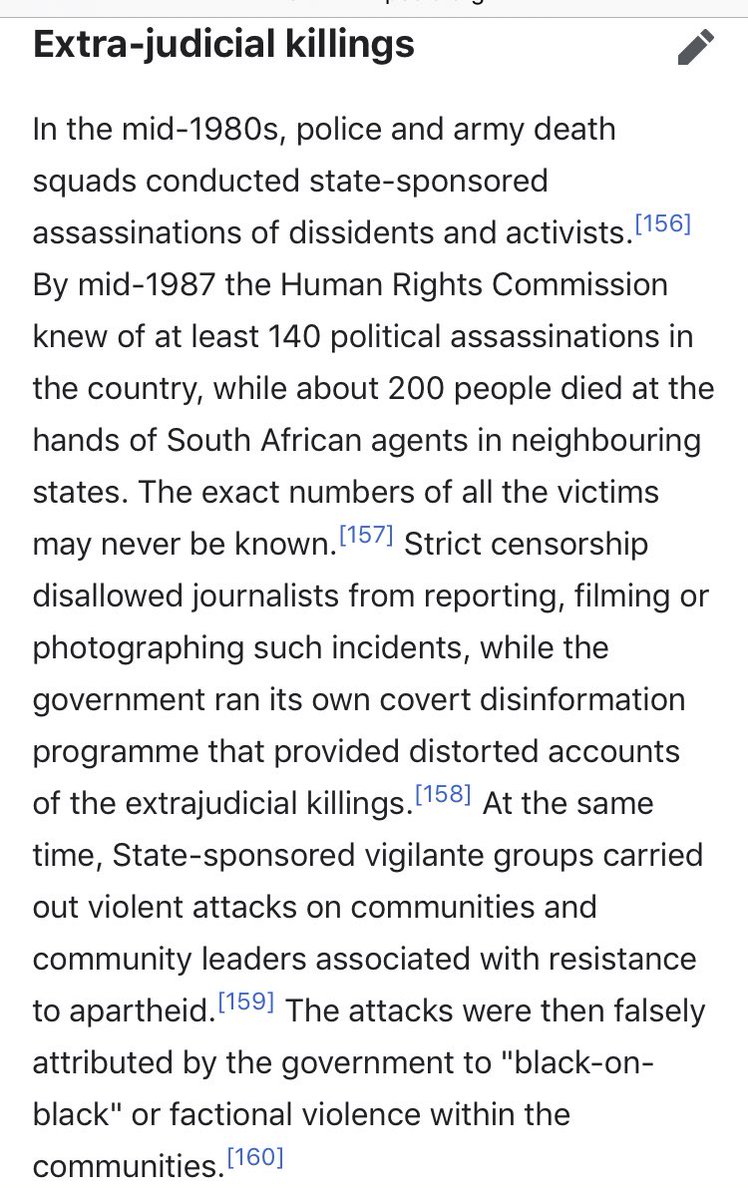
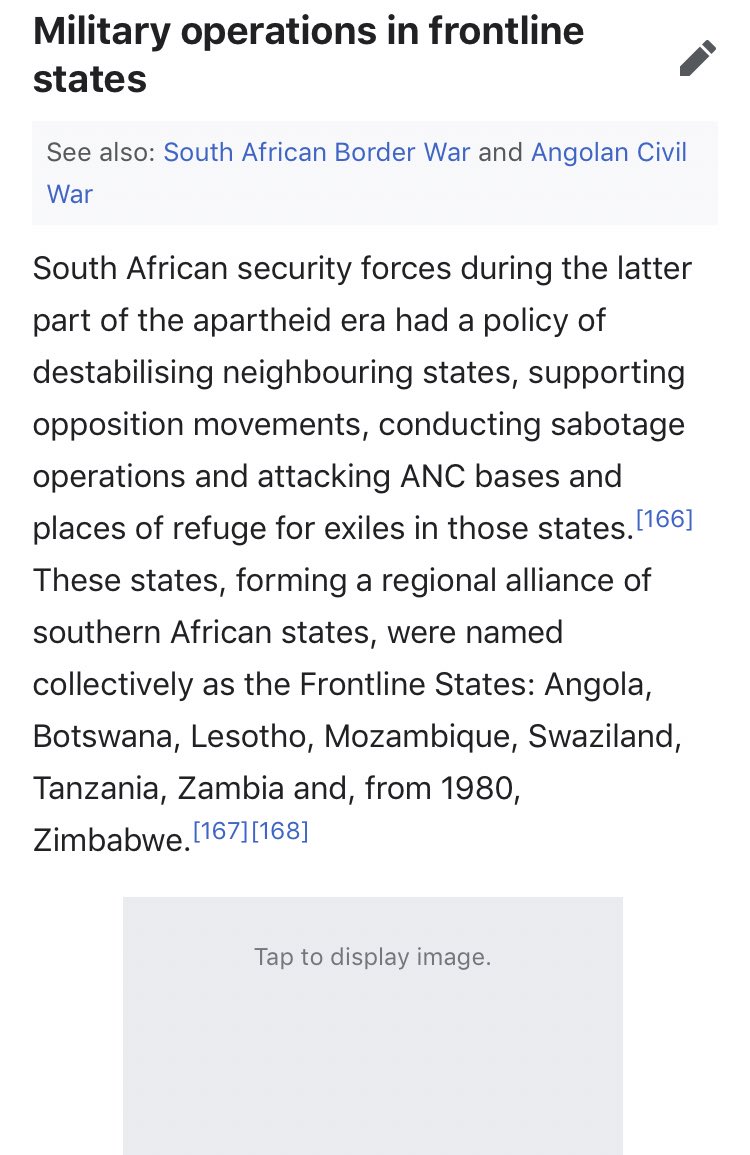
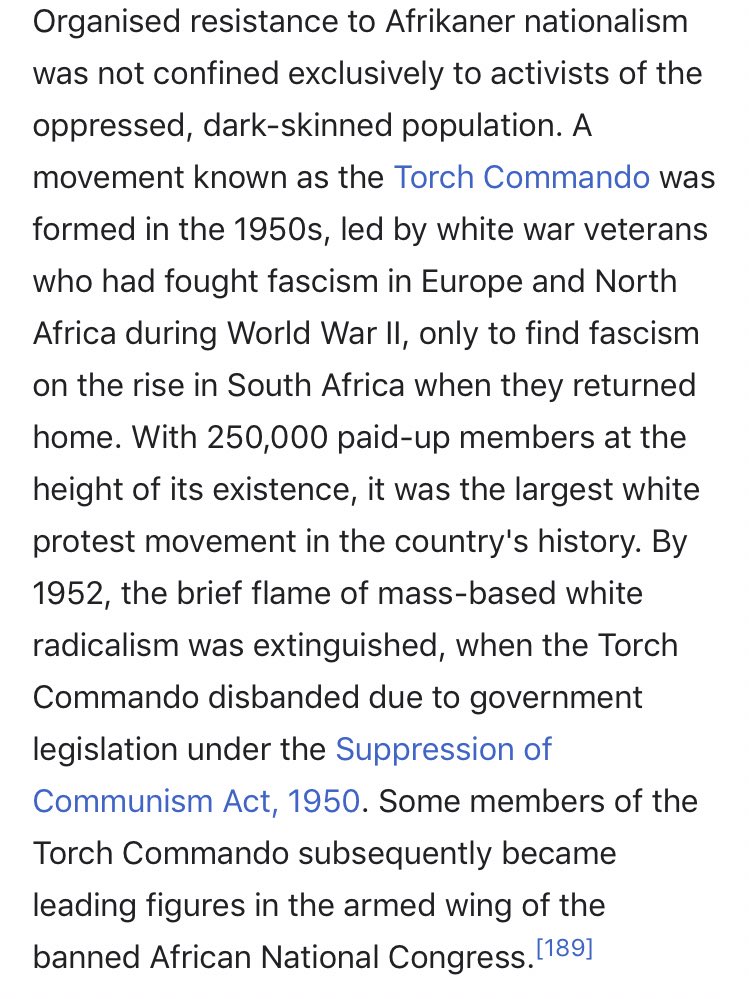
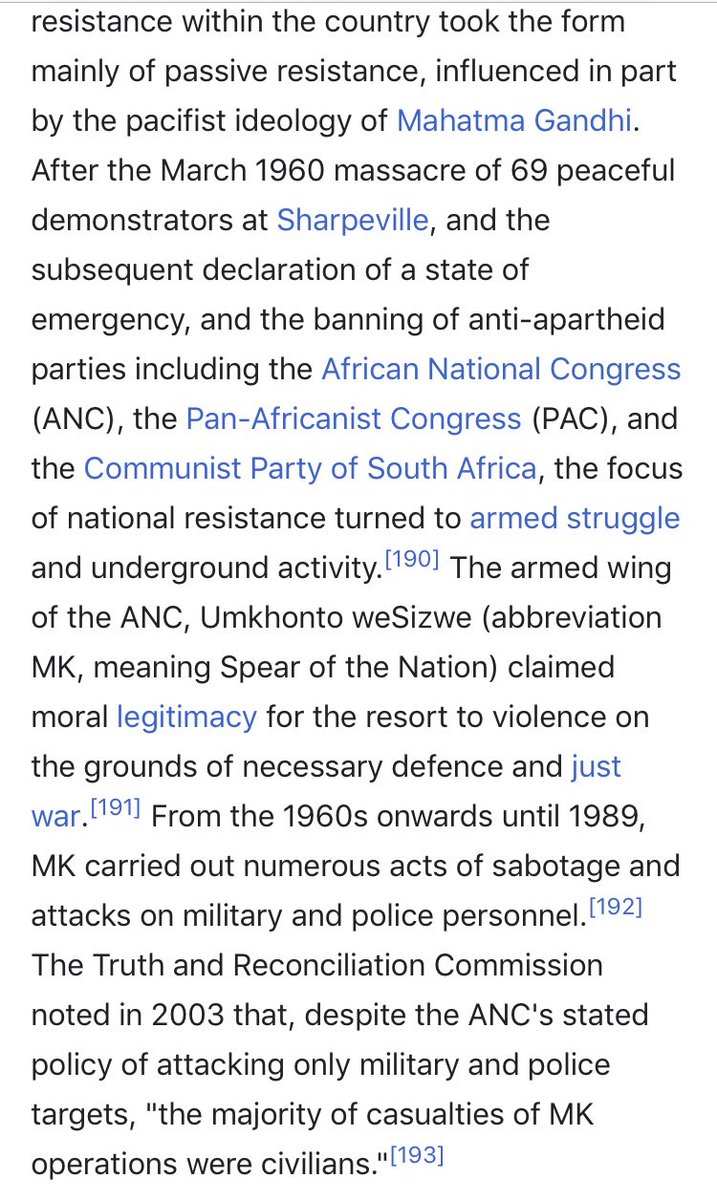
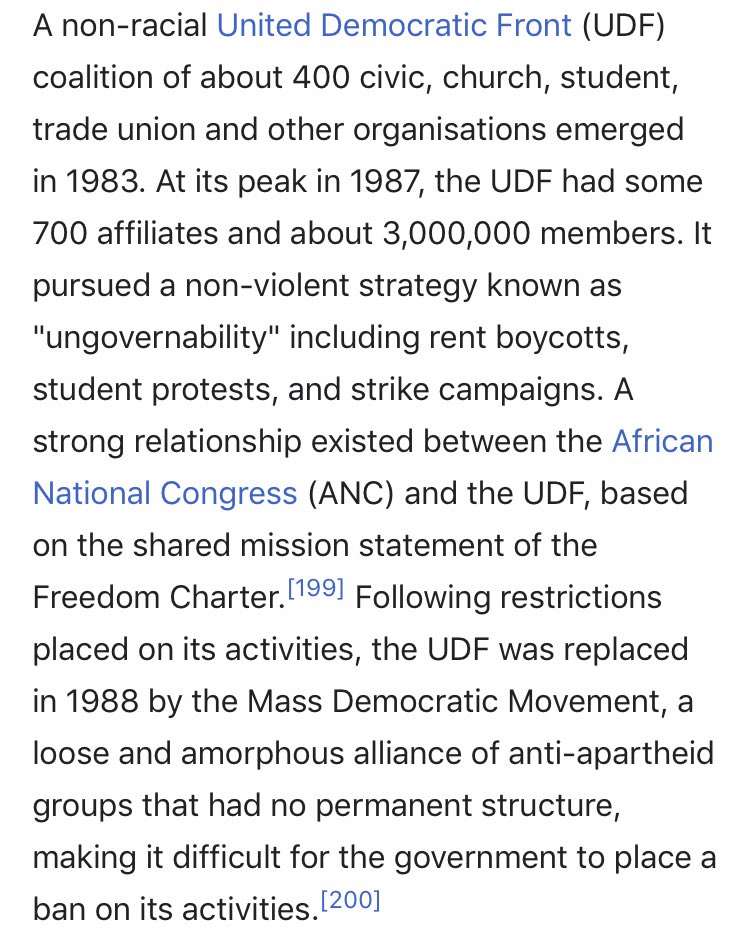
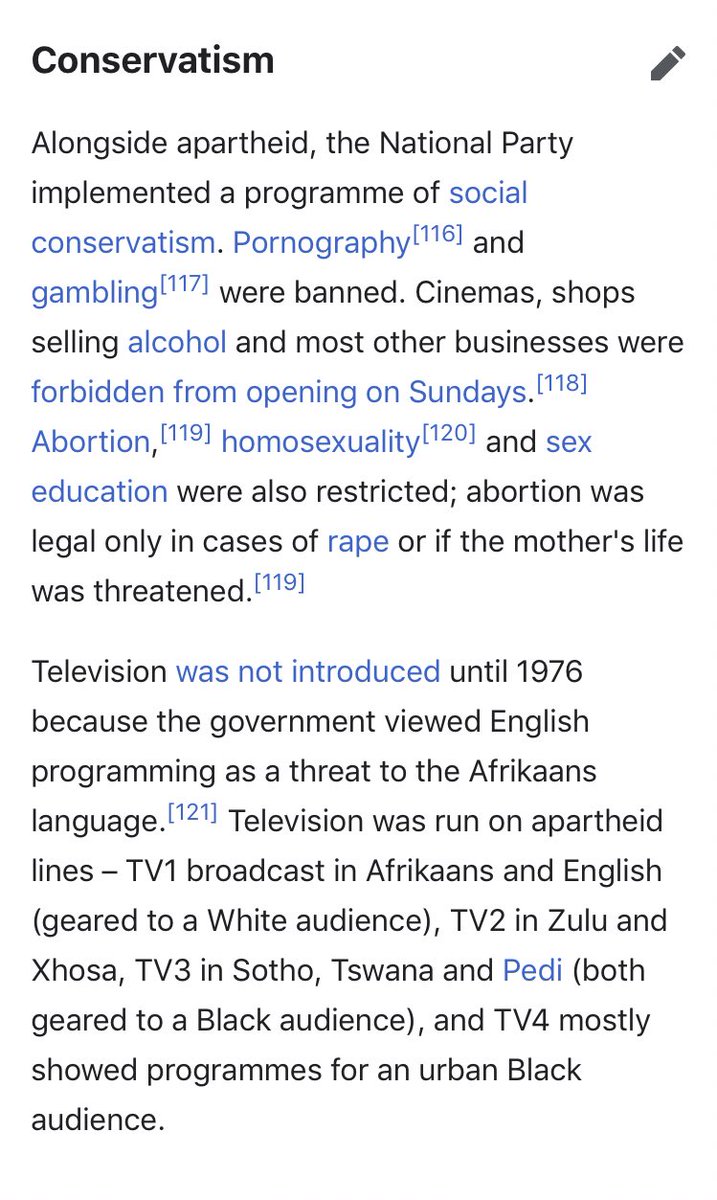
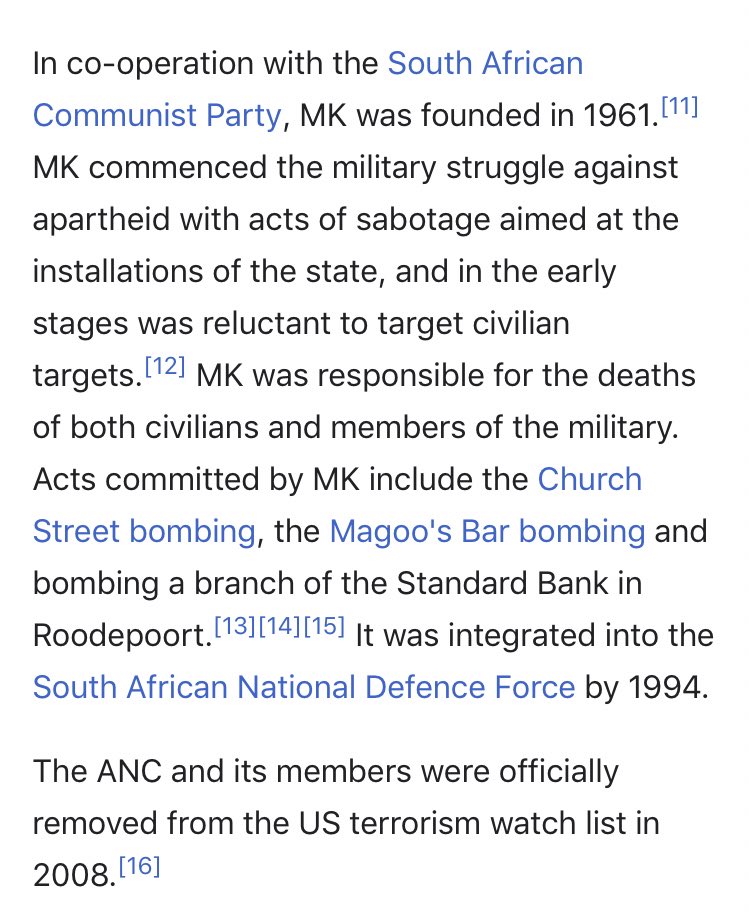
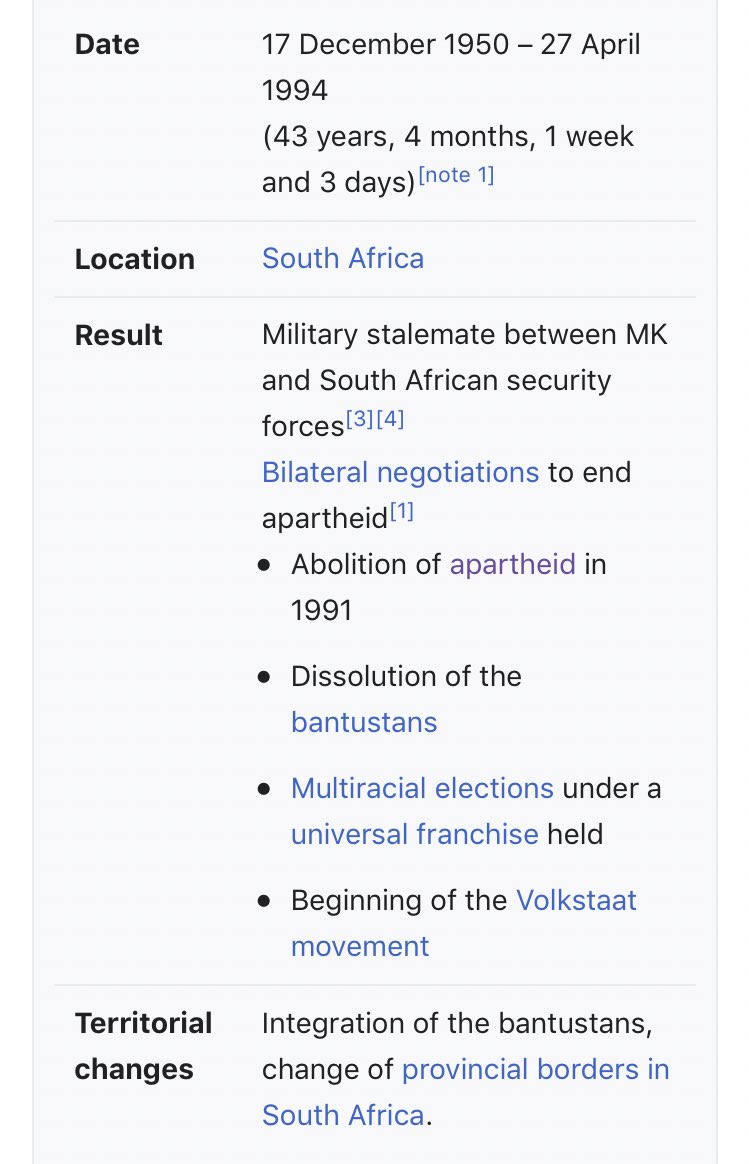
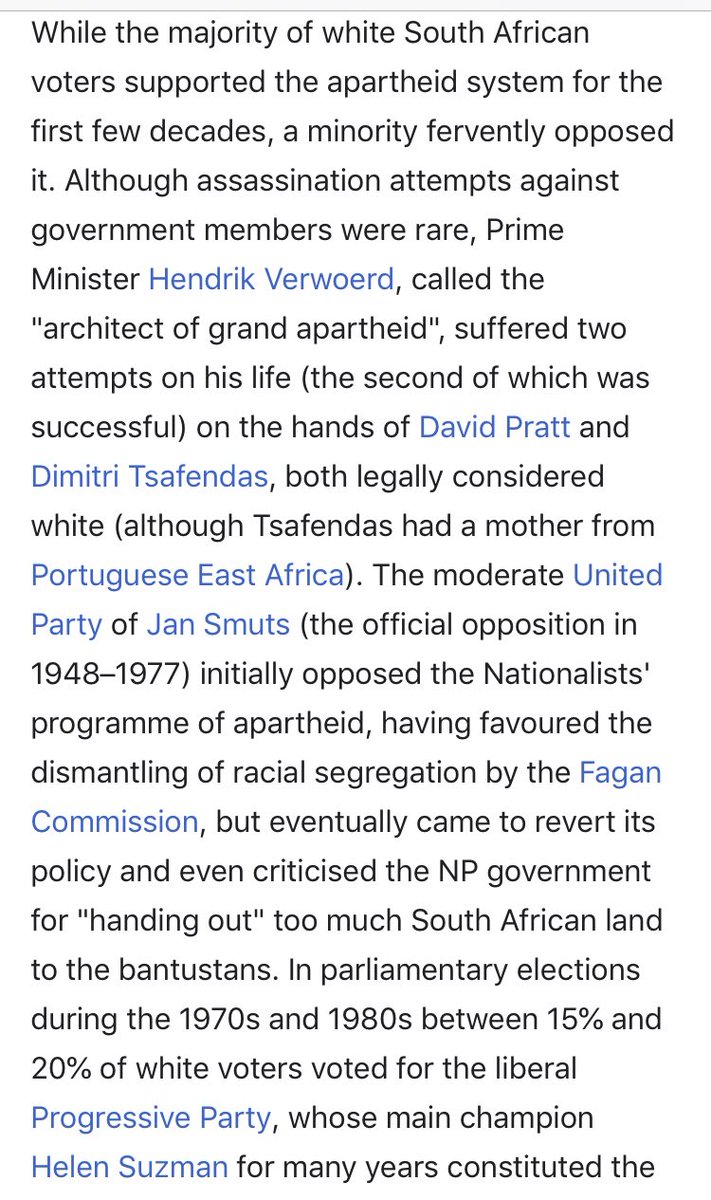
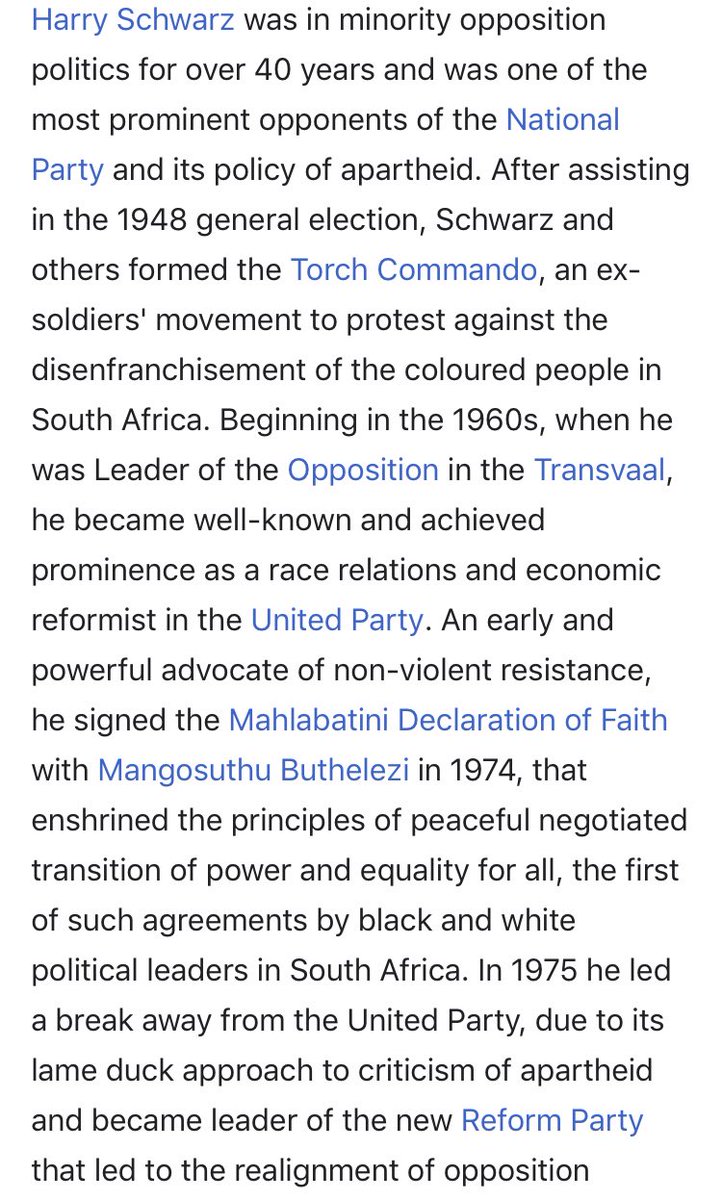
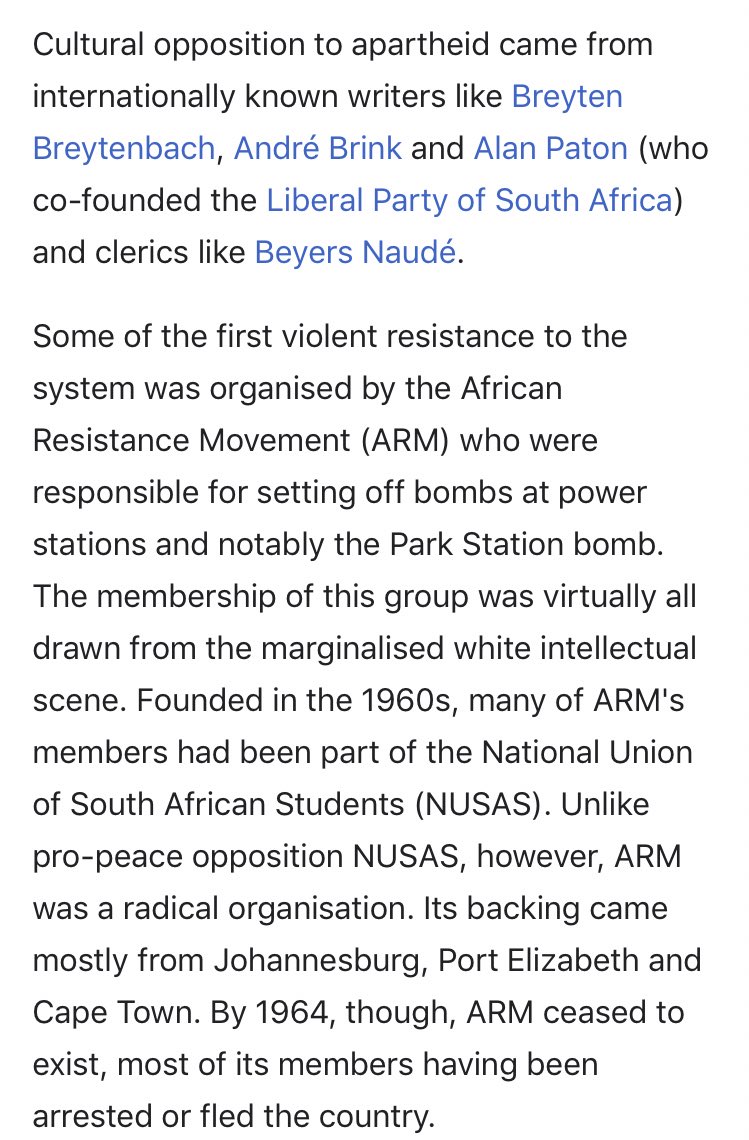
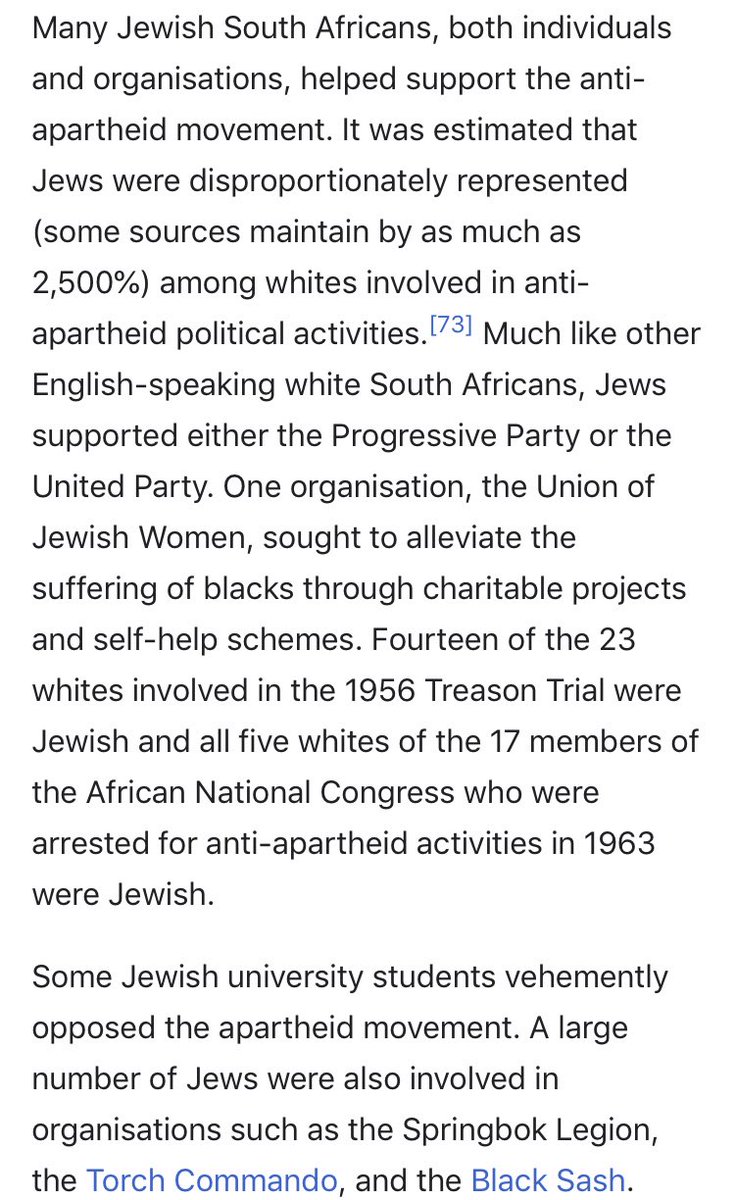
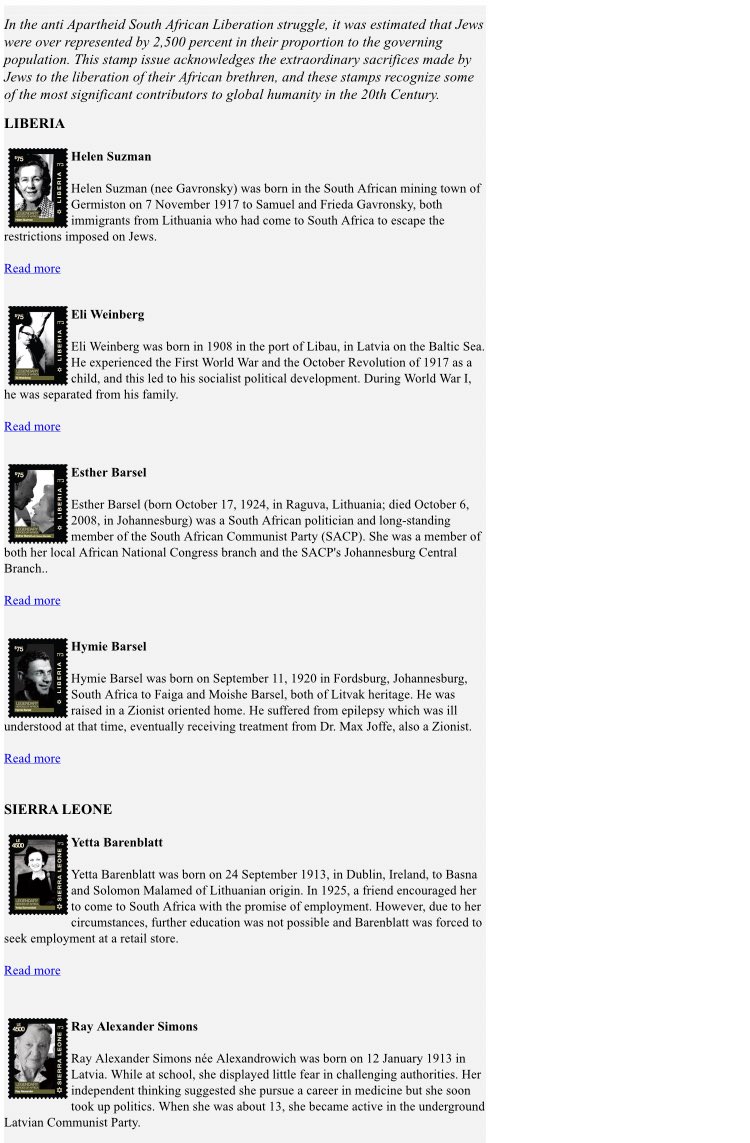
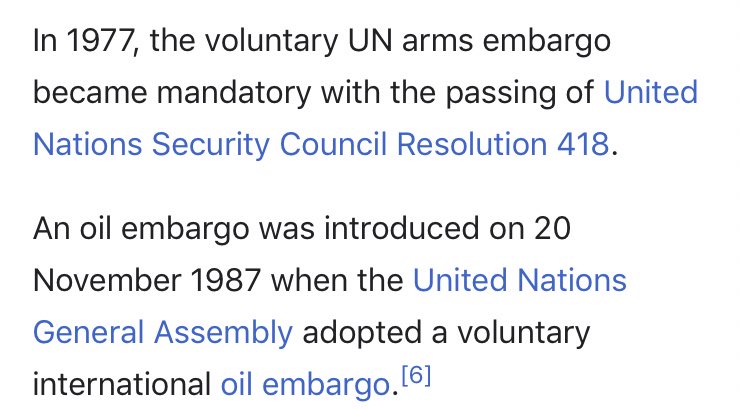
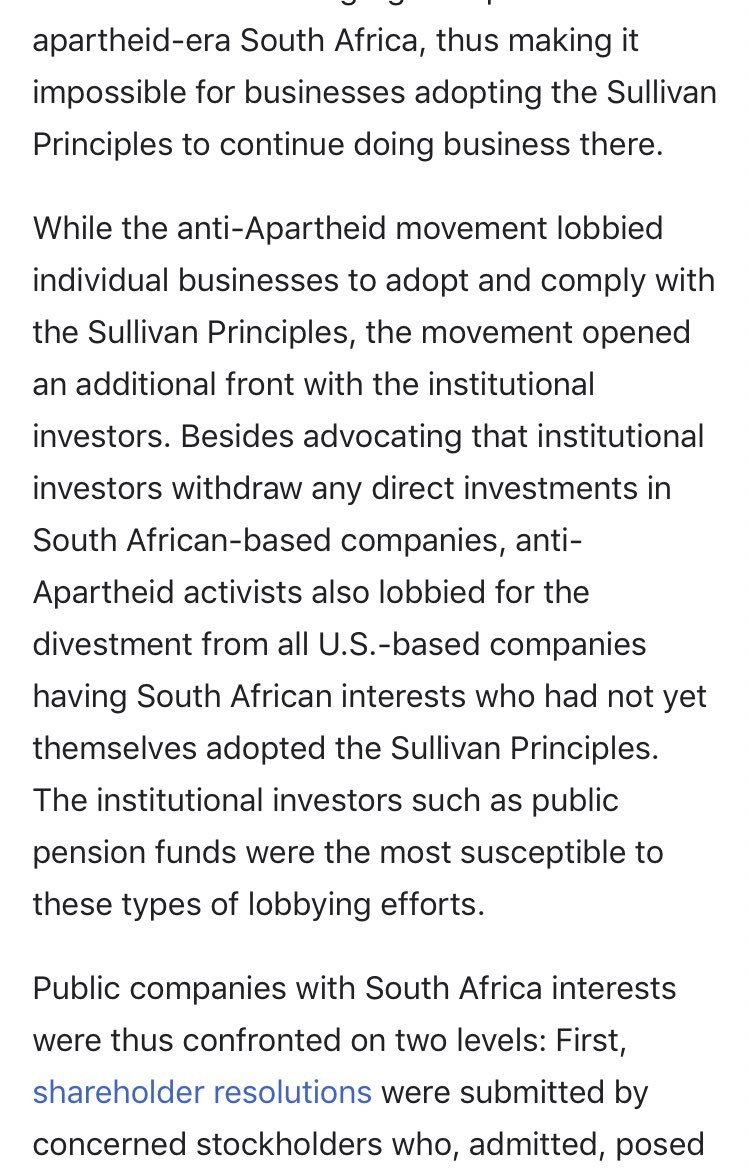


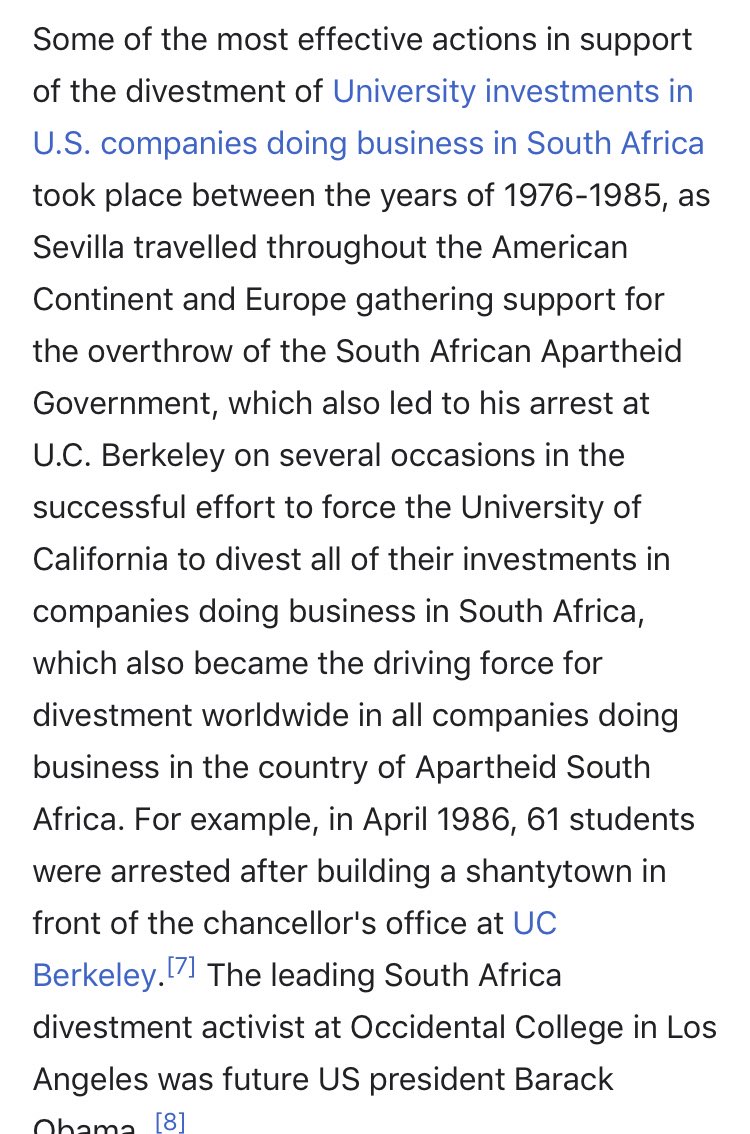
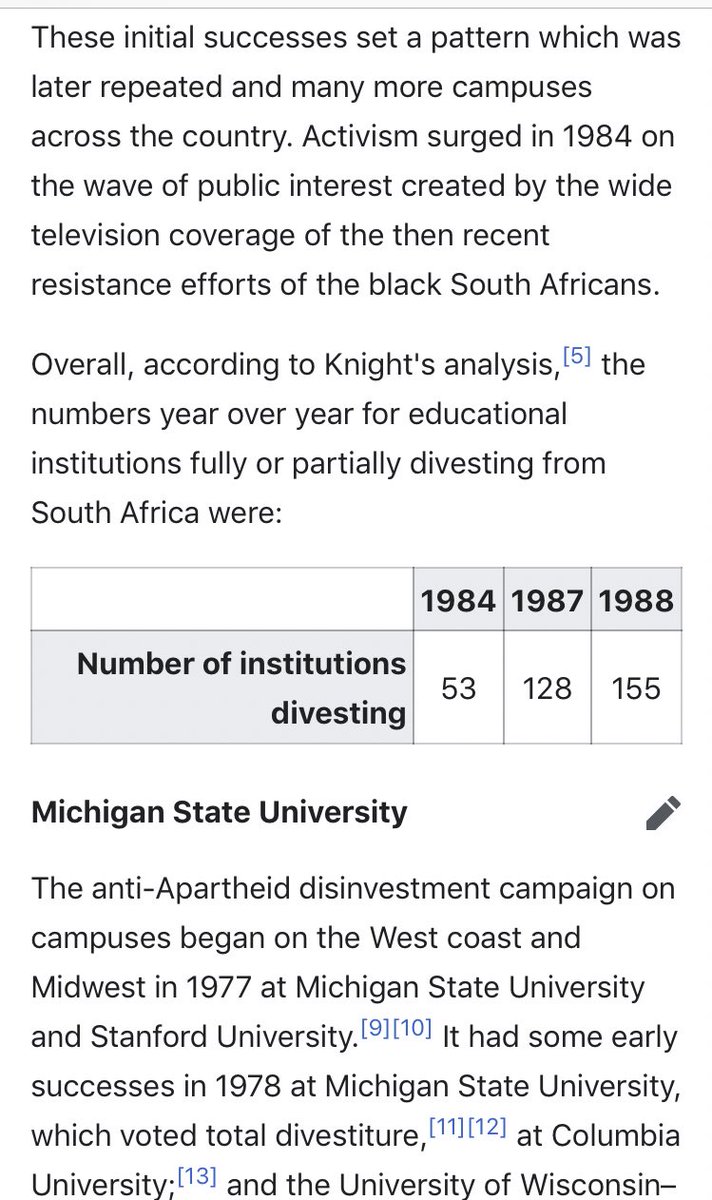

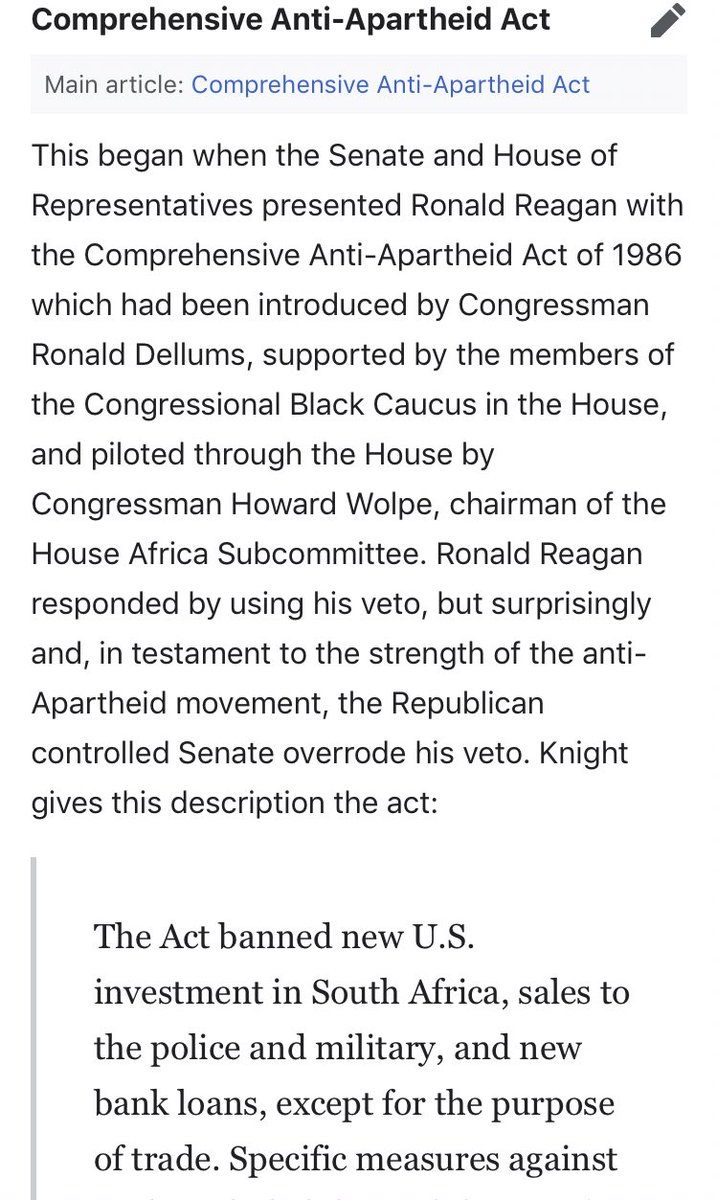
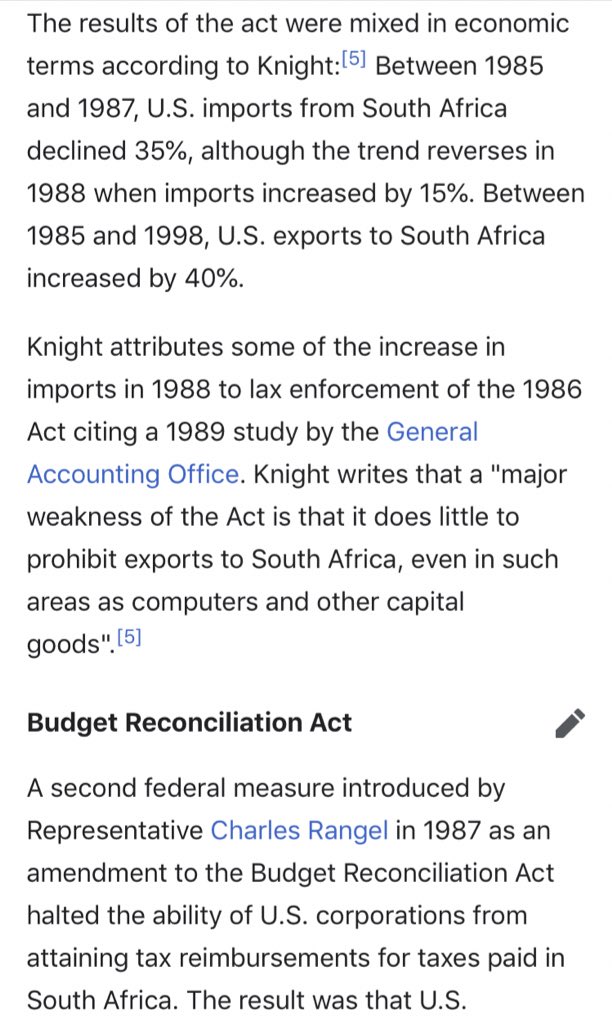
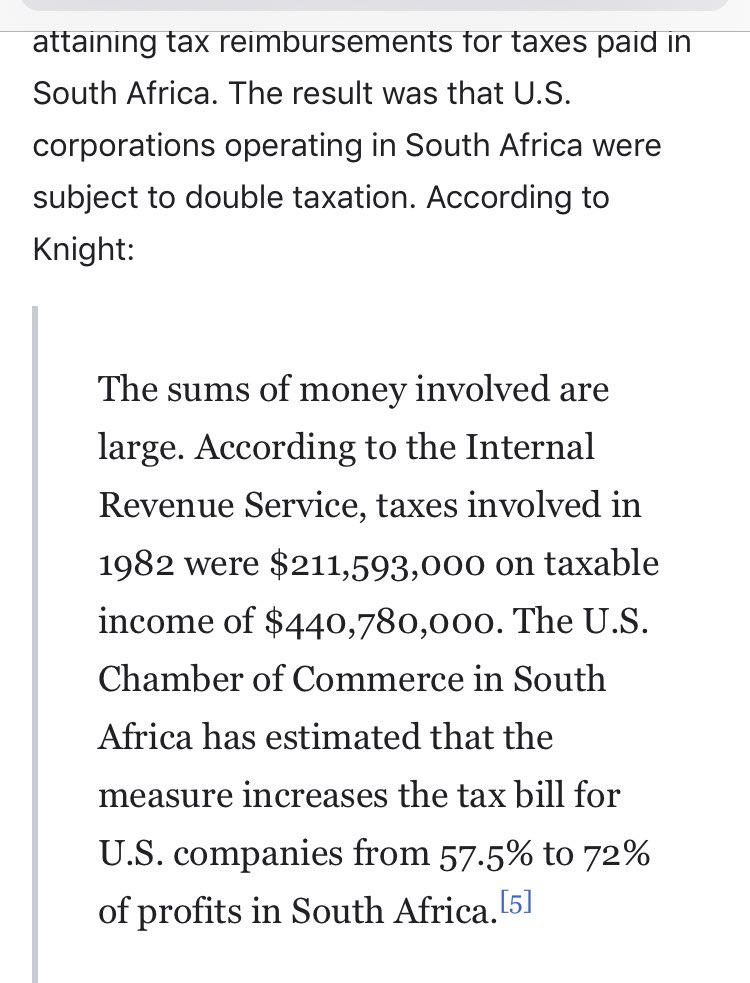
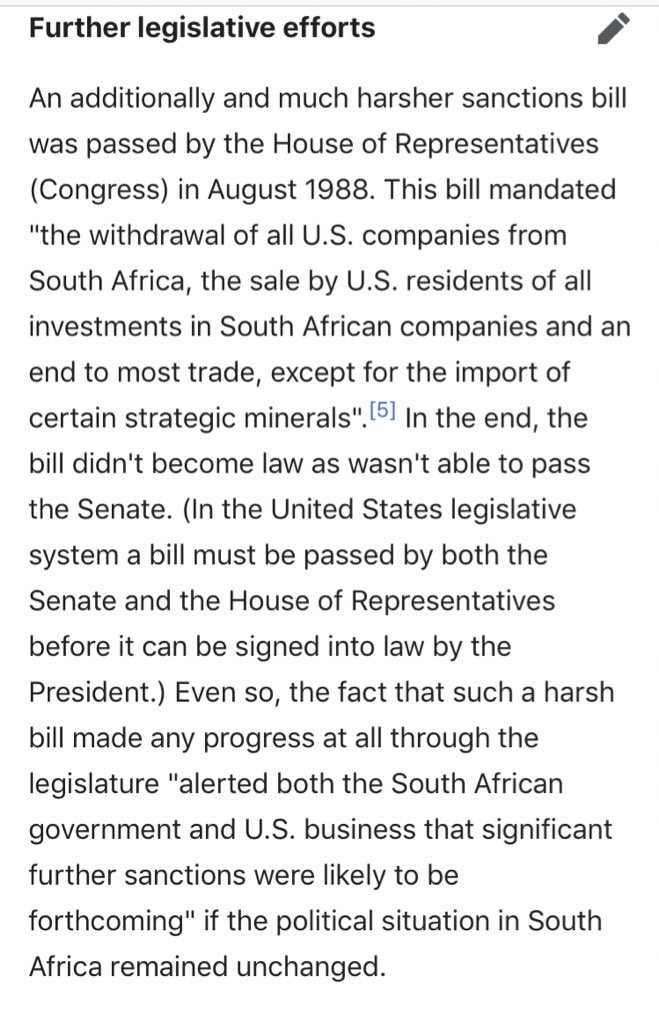
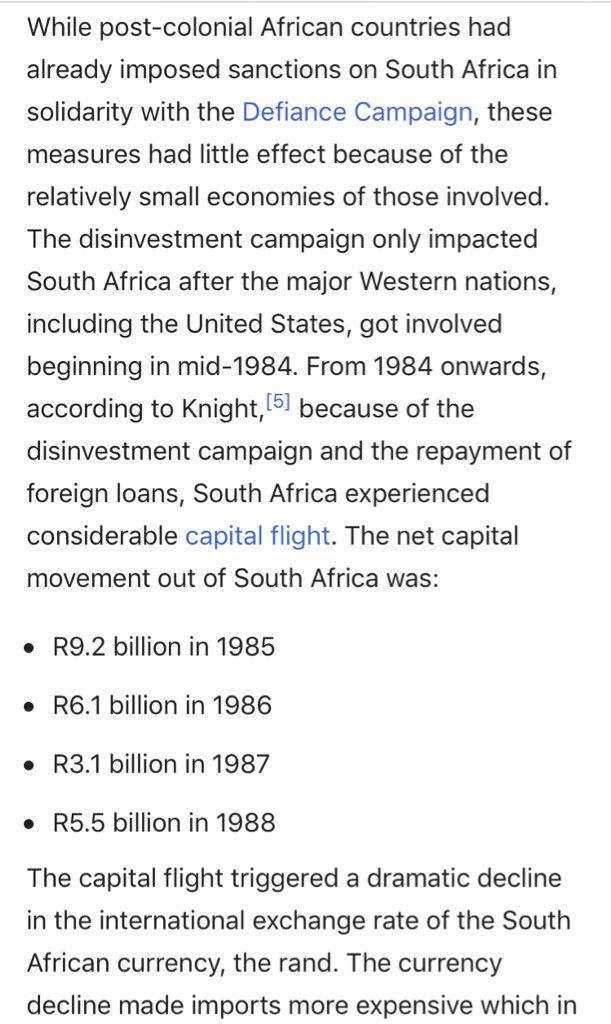
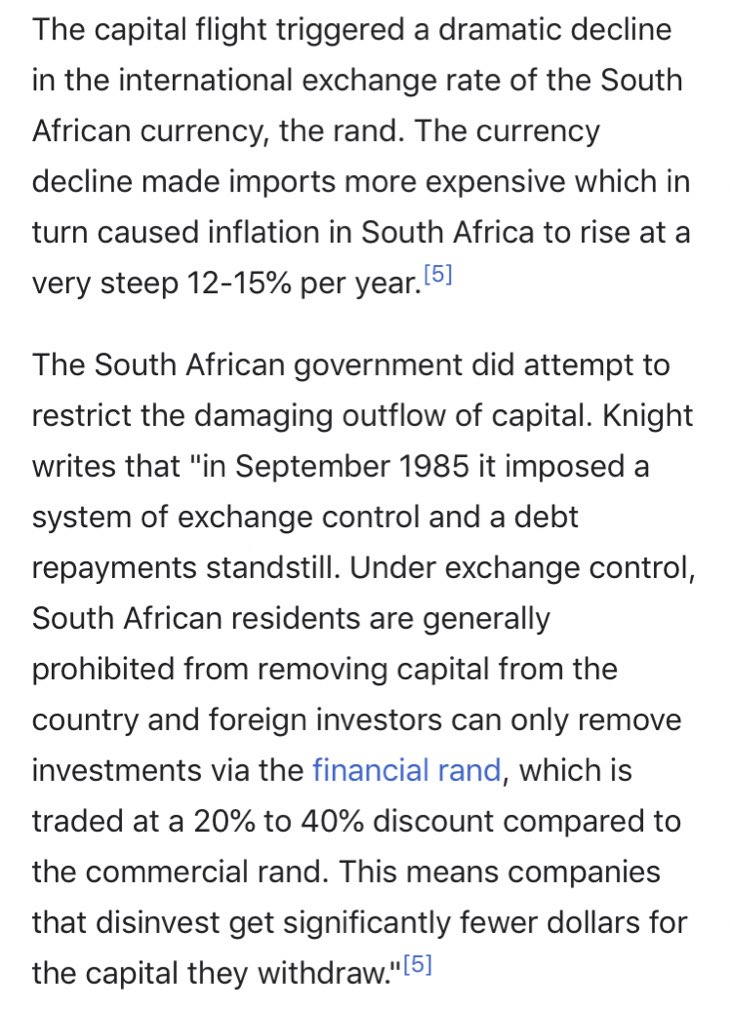

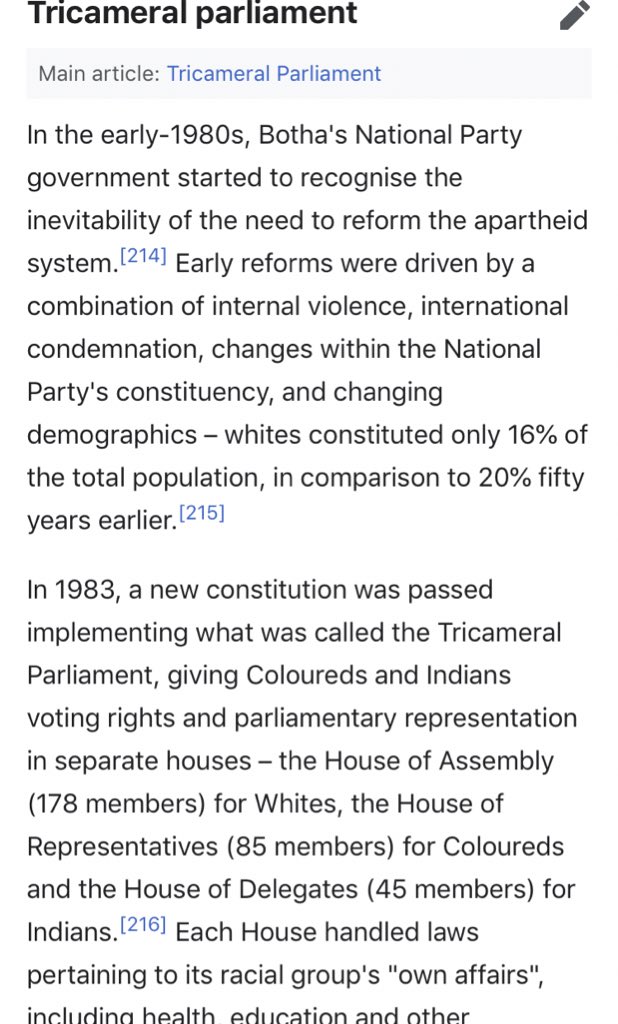

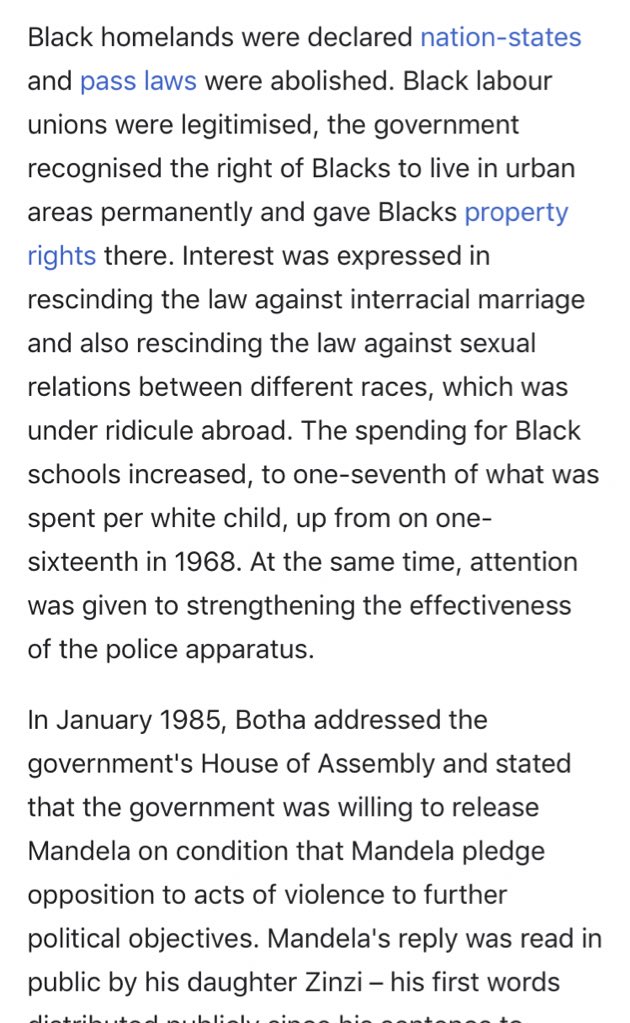
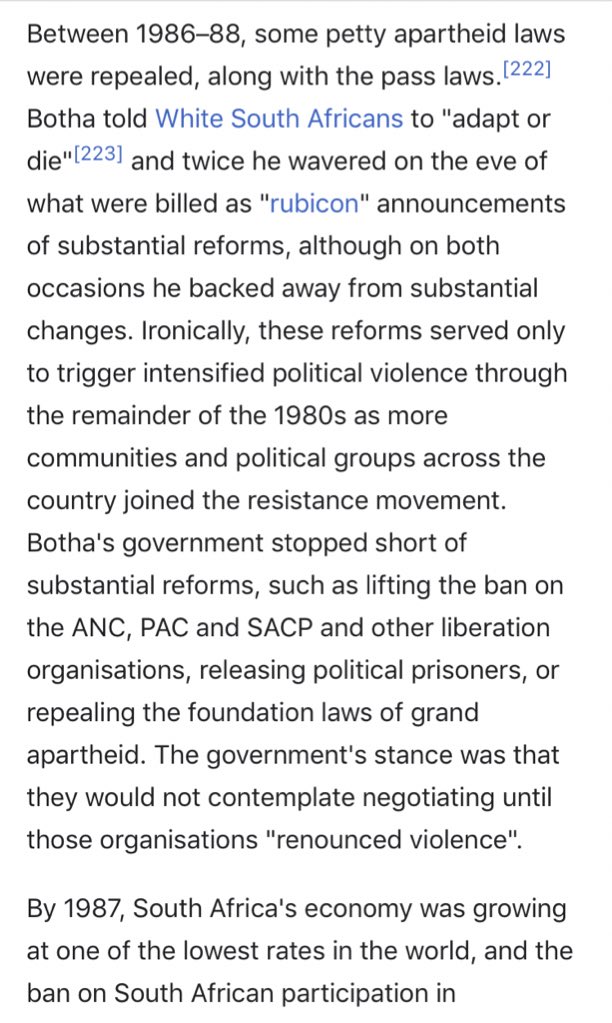
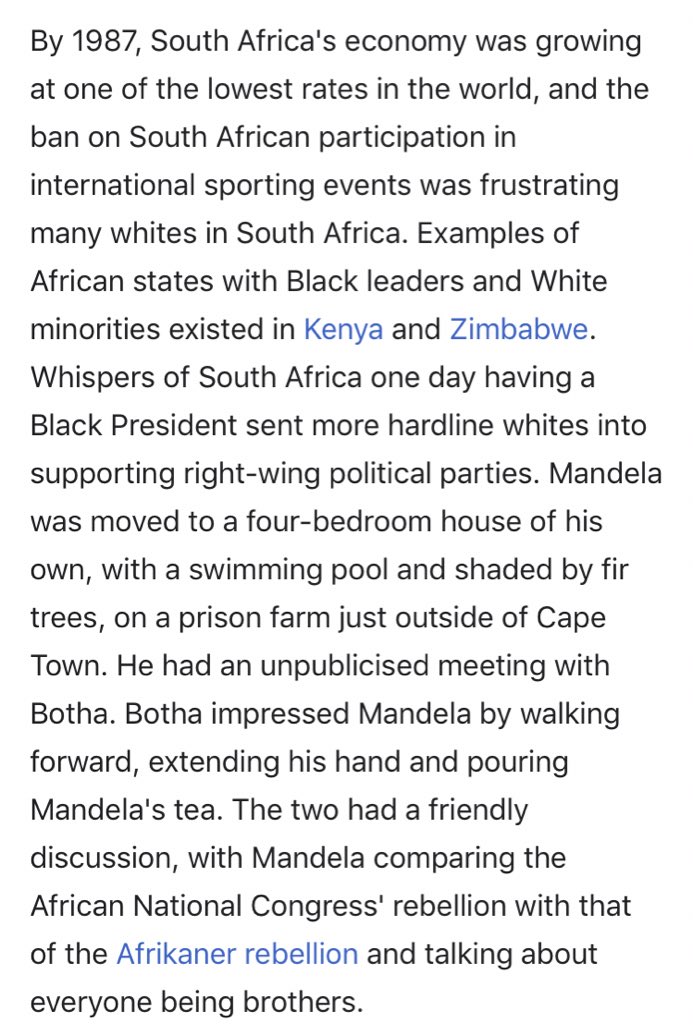
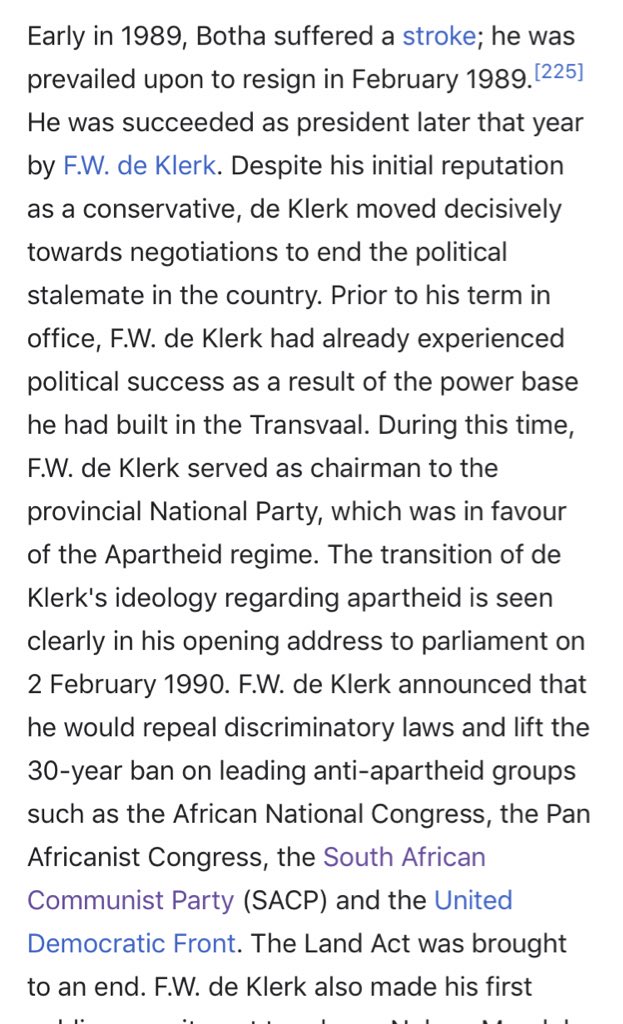
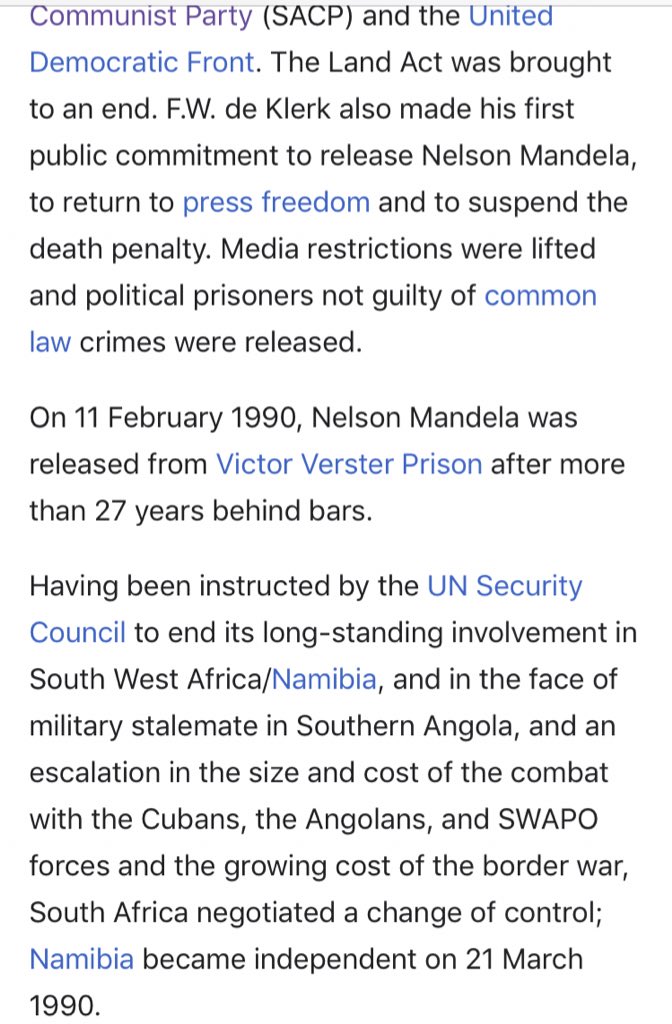

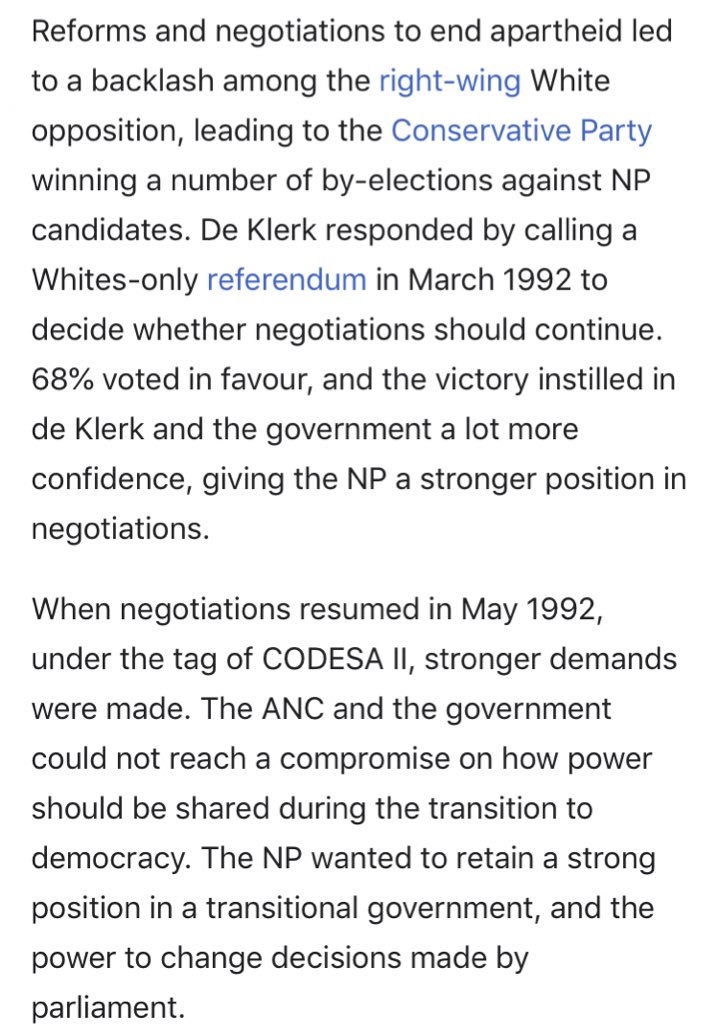
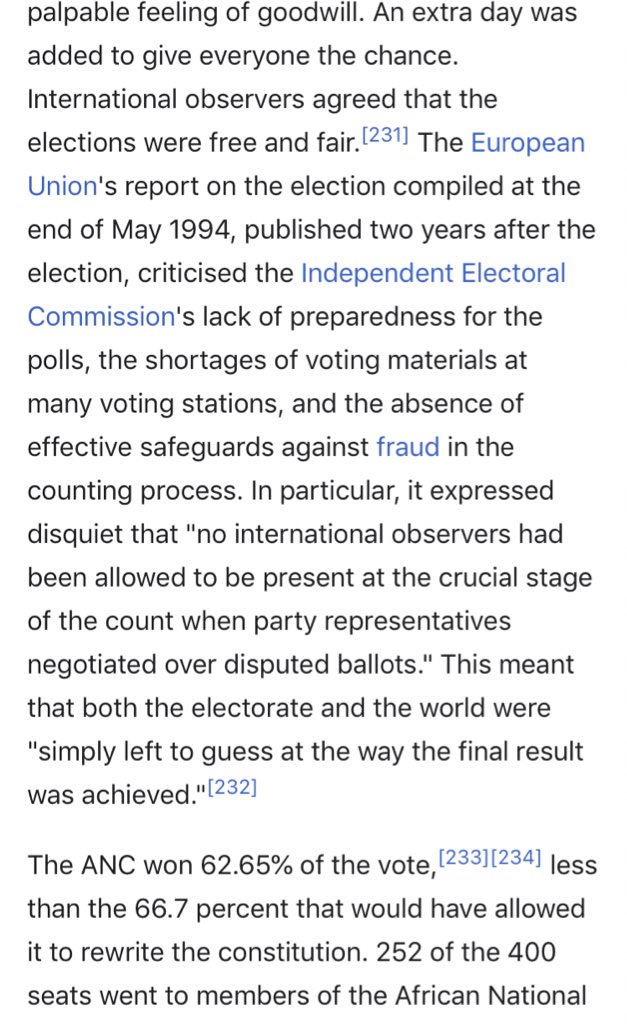

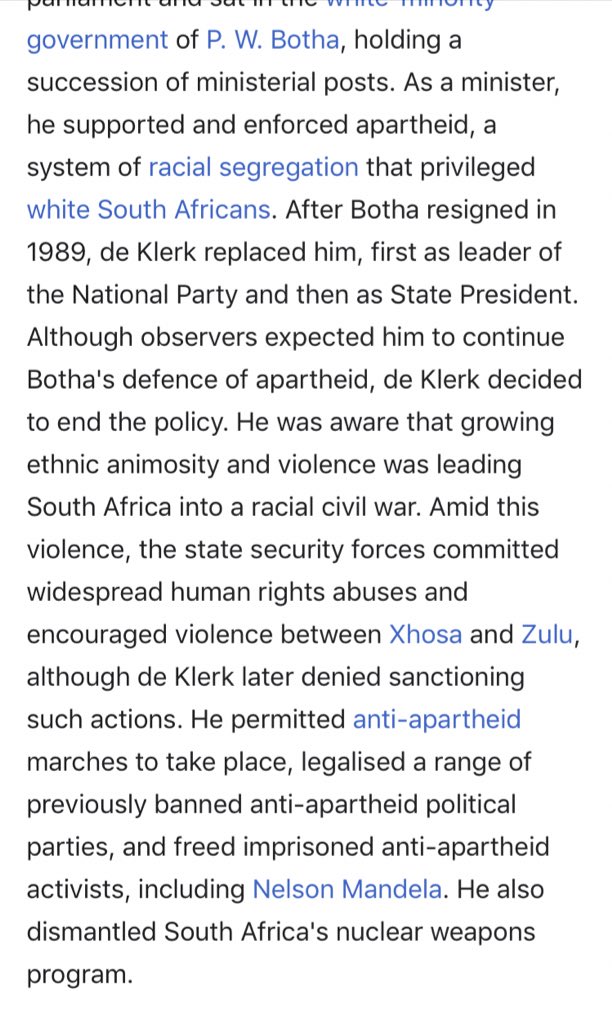
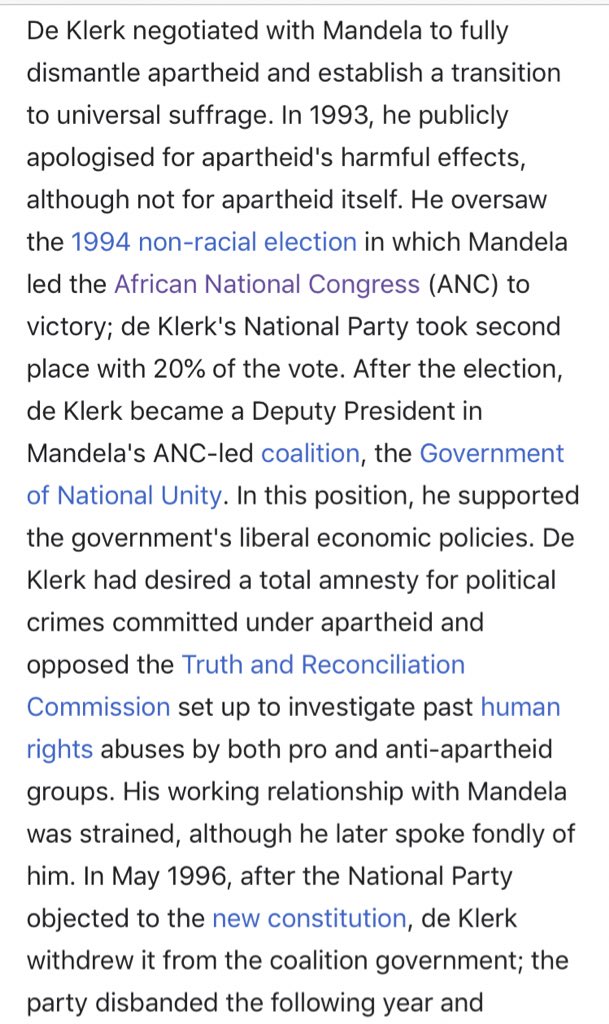
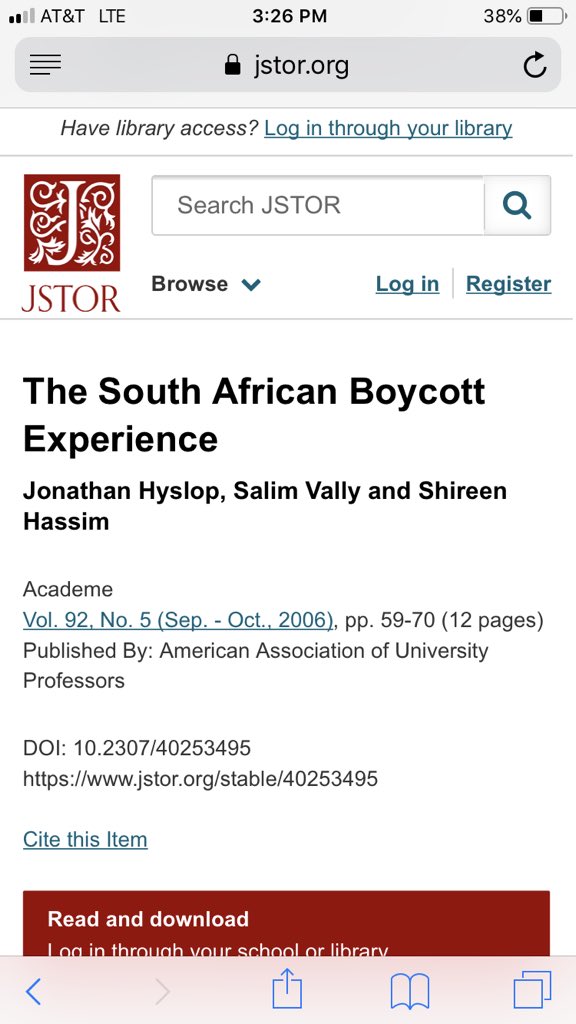 https://www.econ.yale.edu/growth_pd... class="Emoji" style="height:16px;" src=" " title="https://abs.twimg.com/emoji/v2/... draggable="false" alt="▪️" title="Schwarzes kleines Quadrat" aria-label="Emoji: Schwarzes kleines Quadrat"> https://www.econ.yale.edu/growth_pd... class="Emoji" style="height:16px;" src=" " class="img-responsive" style="max-width:100%;"/>
https://www.econ.yale.edu/growth_pd... class="Emoji" style="height:16px;" src=" " title="https://abs.twimg.com/emoji/v2/... draggable="false" alt="▪️" title="Schwarzes kleines Quadrat" aria-label="Emoji: Schwarzes kleines Quadrat"> https://www.econ.yale.edu/growth_pd... class="Emoji" style="height:16px;" src=" " class="img-responsive" style="max-width:100%;"/>


